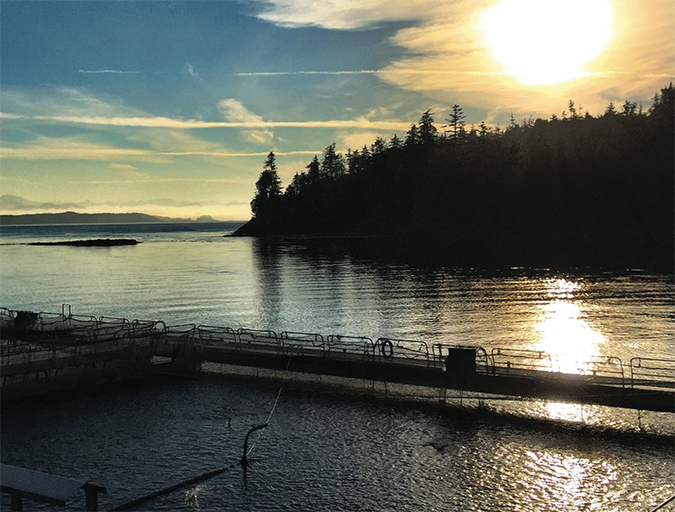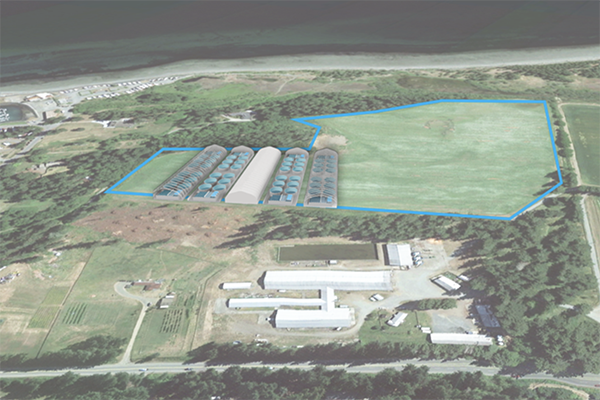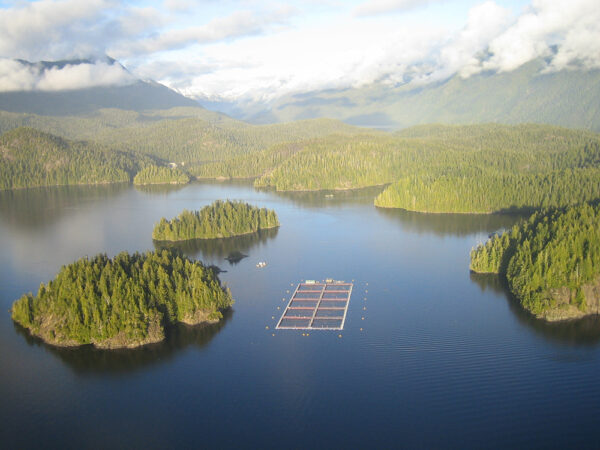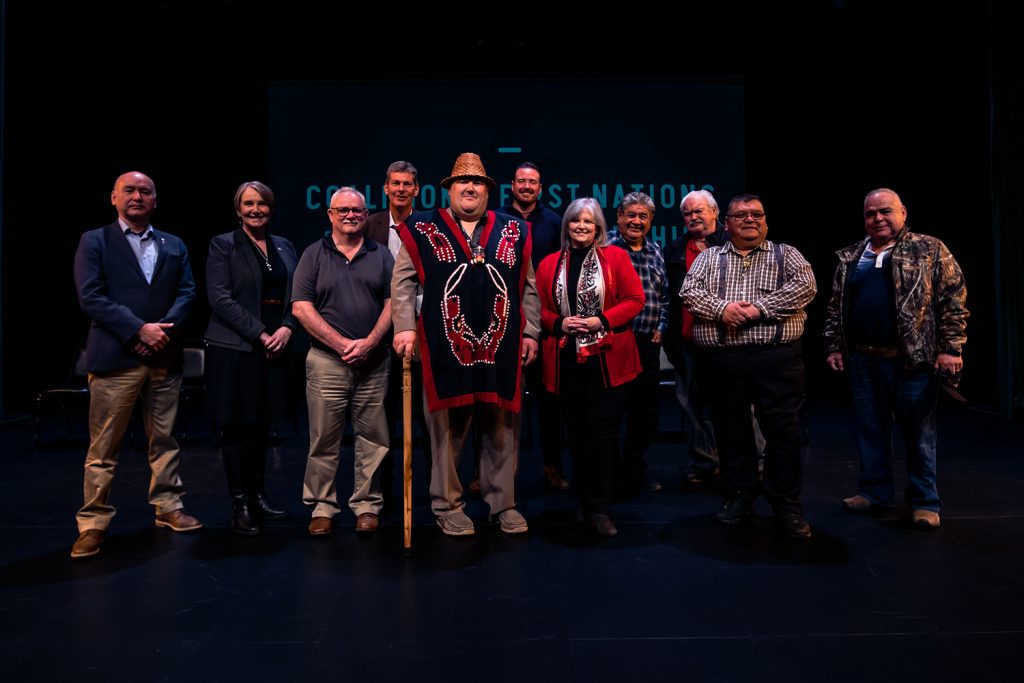Regulatory uncertainty, high capital cost, low ROI and few incentives hurdles to moving BC salmon farms onto land

A new report commissioned by the British Columbia Ministry of Agriculture and Food has concluded that it may not be economically viable to transition BC salmon farms to land-based salmon farming in British Columbia (BC).
The BC provincial government commissioned the report in response to the federal government’s commitment to transform the BC salmon farming sector by 2025. In 2021, Counterpoint Consulting Inc provided an economic analysis of farming salmon using recirculating aquaculture systems (RAS) technology. The findings indicate that regulatory uncertainty, high capital cost, low returns on investment and lack of incentive to locate facilities in BC were all identified as hurdles to the development of RAS salmon farming in BC.
“The salmon farming sector are leaders in RAS technology since our fish spend half their life on land in hatcheries,” says Brock Thomson, innovation director for Cermaq Canada. “We are currently trialing new technologies, such as semi-closed containment and hybrid systems, to systematically reduce interactions with wild salmon and improve fish health. We understand land-based technology, but given the constraints faced, we do not see fully moving to land-based production as a viable solution in the remote, coastal communities where we farm.”
RAS production in BC currently represents less than one percent of farmed salmon production. Moving current levels of ocean farm production to land, which is approximately 90,000 tons, would require a direct investment of between (CAD) $1.8 billion to $2.2 billion (U.S. $1.3 billion to $1.6 billion).
“It is likely that this sort of development could not be accommodated in existing coastal areas, which would result in serious economic impacts to families and all coastal communities up and down Vancouver Island and the Central coast,” said Thomson.
The economic analysis also states that the profitable production of market-sized salmon on a commercial scale remains “elusive.” Currently, salmon raised in ocean-based pens are grown to between five and six kilograms, while those raised in RAS facilities are harvested at less than four kilograms in most cases, further making the technology economically unviable.
“This report released by the province supports what salmon farmers have been saying for many years,” says Brian Kingzett, executive director for the BC Salmon Farmers Association. “Our sector strongly supports RAS technology – in fact, we are experts at using RAS to grow salmon – but to move the entire sector on land isn’t a realistic option, nor is it required to protect wild salmon. The federal government’s numerous science assessments have confirmed Atlantic salmon farms pose no more than a minimal risk to wild salmon abundance and diversity under the current fish health management practices. The challenges identified in the report need to be addressed before we could even consider this.”
Now that you've reached the end of the article ...
… please consider supporting GSA’s mission to advance responsible seafood practices through education, advocacy and third-party assurances. The Advocate aims to document the evolution of responsible seafood practices and share the expansive knowledge of our vast network of contributors.
By becoming a Global Seafood Alliance member, you’re ensuring that all of the pre-competitive work we do through member benefits, resources and events can continue. Individual membership costs just $50 a year.
Not a GSA member? Join us.
Author
Tagged With
Related Posts

Intelligence
Land-based salmon aquaculture facility proposed for British Columbia
Taste of BC Aquafarms is seeking approval to build a salmon aquaculture facility that uses a land-based recirculatory aquaculture system.

Intelligence
Federal Court rejects Canadian government’s plan to phase out BC salmon farms
The Federal Court has rejected the Canadian federal government's plan to phase out BC salmon farms in the Discovery Islands.

Responsibility
Some First Nations are asserting their right to farm salmon, despite pending government closures
With salmon farm closures imminent, some First Nations are taking action to preserve ocean-based farming and assert Indigenous sovereignty.

Responsibility
British Columbia salmon farmers wary of Liberal government’s aquaculture plans
The Canadian Liberal Government’s announcement of Aquaculture Act left the industry feeling anxious while some stakeholders say they were completely left out of the process.



